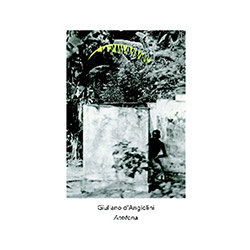
Another Timbre's second CD of chamber works by the Paris-based Italian composer Giuliano d'Angiolini: Four pieces - ensemble works performed by Apartment House and the Orchestra del Teatro Comunale di Bologna, a duo for flute and piano, and a piece for solo piano played by the composer, all performed at the 2018 Angelica festival in Bologna Italy.
In Stock
Quantity in Basket: None
Log In to use our Wish List
Shipping Weight: 3.00 units
EU & UK Customers:
Discogs.com can handle your VAT payments
So please order through Discogs
Sample The Album:
Giuliano d’Angiolini-piano, composer
Orchestra del Teatro Comunale di Bologna-orchestra
Tonino Battista-conductor
Manuel Zurria-flute
Mark Knoop-piano
Apartment House-ensemble
Click an artist name above to see in-stock items for that artist.
Label: Another Timbre
Catalog ID: at157
Squidco Product Code: 29312
Format: CD
Condition: New
Released: 2020
Country: UK
Packaging: Cardboard Gatefold
Track 1 recorded live at AngelicA Festival, in Bologna Italy, on May 24th, 2018, by Roberto Salvati.
Track 2 recorded at La Beaudelie, in Voutezac, France, on February 11th, 2017, by Jean-Marc Chouvel.
Track 3 recorded in London, UK, on February 9th, 2019, by Mark Knoop.
Track 4 recorded at the University of Huddersfield, in UK, on January 5th, 2020, by Simon Reynell.
"A port in the storm, this. Giuliano d'Angiolini is a Paris-based Italian composer and ethnomusicologist who makes music of whispered, consolatory indeterminacy. He is probably best known (if he is known at all) for a 2011 album called Simmetrie di Ritorno, but I would argue that this new release is more sublime, or perhaps just more timely. It contains poised and attentive performances of the piano piece Finale, the string quartet (Suoni della Neve e del Gelo) and the five-flute Aria del Flauto Eolico, all of it the most discreet and enabling kind of chance music - like John Cage, d'Angiolini uses procedures that play out differently every time - that isn't didactic or abrupt and never resorts to shock tactics. Instead, it lays sounds bare and leaves generous opens spaces for a listener to feel her own responses, or not. This is music in the present tense, no guile or bile or shouting, no post-truths."-The Guardian
"Another Timbre Interview with Giuliano d'Angiolini
On the cover of your CD you say that the compositions "follow strict procedures of indeterminacy (realised by diverse techniques). Each performance sounds different, with pitches, durations, harmonies and instrumental combinations changing". Can you explain how this indeterminate element works in each piece?
In the orchestral part of Ad ora incerta long sustained tones and fragments of melodies are placed into time zones, which are measured in seconds, but whose boundaries fluctuate: it's Cage's system of 'time brackets'. The precise order of events is unpredictable as well as their combinations, but the composition is conceived in such a way that - whatever happens - the basic harmony is always consonant. However, the piano part is fixed and entirely written out, in contrast with the orchestral parts on which it is superimposed.
In Aria1 the pianist has a group of between three to five notes available for each attack. The notes are all from a pentatonic scale which slides progressively across the chromatic field. No duration is specified, which obliges the interpreter to become involved to some extent in the compositional process.
Litania applies the same principle to an instrumental ensemble, but here there is a distinction between long and short notes (though exact durations aren't specified). In addition the density of the music is variable because each player may start at whatever point they choose after the preceding musician has begun to play, but before this one has finished his sequence of notes.
These three works apply indetermination processes as much to the articulation of events in time as to the organisation of sounds.
In Antifona the score offers a choice between several different sounds for each attack, but the duration of each sound is precisely notated.
Indeterminacy can point in different directions. Some see aleatoricism as a kind of objective discipline and wouldn't want any input from the performers, whereas others welcome musician choices as an interesting way of building in unpredictability. How do you see your music within that spectrum, and why do you continue to take the path you do ?
First it is necessary to distinguish between 'randomness' (alea), 'chance' and 'indeterminacy'. These are different things. As to the role that the interpreter plays in my compositions, well, it's variable. Often musicians have a lot more freedom than in music that is entirely determined, including the freedom of not being obliged to count beats or bars, which allows them to 'live' the sound and music in a more intimate way. Sometimes the musician can choose from a large range of actions, and so is given a more large degree of responsibility in the musical process, as happens in Aria1. This greater involvement of the interpreter brings with it a particular discipline. In the score I specify that " the choice of notes should not be made according to a logical system or a predetermined plan. The performer should remain serene and open both to choices which arise from personal taste and to what is unpredictable. If a figure appear, let it out, so that each event can truly be itself. "
In Aria1 (as well as in Cantilena, which featured on my previous Another Timbre CD) everything is reduced to a simple melody, stretched across time and centred on the sounds. Indeterminacy enables each performance to have the freshness and the element of surprise that you experience when you first hear a piece, before you can establish more precisely the relationships between events in the music, and before you can fix them within mental categories.
In all aspects of life our brains never stop to smooth discontinuites and imposing a direction to the events. Our brains are always establishing causal relationships between phenomena using both memory and anticipation. It's a fundamental activity which makes our intelligence an instrument that is working for our survival. These attitudes makes that our brains are " starved of stories ", as Oliver Sacks puts it.
A large part of musical art (as well as cinema or theatre) is spontaneously in phase with these thought mechanisms and corresponds to the habitual requirements of our mind. Now for me it's a question of proposing a different experience, that of a music without development ; a music which privileges the precept rather than the concept, and which escapes the laws of cause and effect. This is the essence of art : it allows us to discover worlds which we don't yet know.
Indeterminacy is a way of achieving all this, and that is why it continues to play a central role in my compositions. This isn't a matter of an ideology that I impose to myself but is a profound necessity: I write the music that I need.
However, I don't discount the possibility that a composition might be entirely determined, as long as it is done with an open spirit and the approach is non-intentional.
You describe Ad ora incerta as being for 'orchestra'. How large was the ensemble in the recording, and how large could it be for that piece? Is your music better suited to small ensembles, both in terms of the delicate soundworld you prefer, and is it harder to produce satisfactory results with large ensembles using indeterminate systems ?
Ad ora incerta was composed for a small orchestra - in this case about 24 musicians. The number of strings may vary a little, but the size of the ensemble remains smaller than a full orchestra.
I find it easier to collaborate with specialist ensembles or soloists, who are more inclined to study the more delicate aspects of the music. Quite often my music is not based on those things which musicians spend many years studying and which they are used to mastering. Sometimes I ask them to use methods of playing, or to rethink their habitual gestures and techniques, in ways that run counter to what they have learned. For example, I ask violinists to hold a single note as long and as constantly as possible for the length of a whole bow. It should be an elementary gesture, and yet in practice trained violinists often find this difficult. Moreover, some systems for applying indeterminacy require unusual behaviours which can't really be applied with a large ensemble.
An orchestra is a heavy and rigid organisation, closely bound to the repertoire for which it was created. It has not really evolved for a long time, either in terms of the instruments used, or in terms of acquiring new techniques or new ways of playing. In spite of a few episodes where it has opened to some extent to contemporary music, the orchestra generally lacks a dynamic which would allow it to become a living musical reality : it only exists for the 'great repertoire' of the past. Playing many of my scores demands a degree of engagement and mental openness which you can't really ask of an orchestral musician in the current state of affairs. Having said that, I can adapt my composing to any ensemble, and if I haven't worked more with orchestras, it's also because orchestral commissions to contemporary composers are very rare, and I've given up in advance.
Finally I wonder how you think the C-19 crisis is affecting and will change both your own practice as a composer, and experimental music generally ?
In our regions the virus will disappear quickly; but this isn't the case with the attitude of our governments, who invade our lives and want to control us. Disregarding commercial music, today we mostly play music from past centuries. But that has never been the case before: people have always been thirsty for the new; at the end of the Middle Ages people forgot the music that had been composed thirty years previously, and forgot the names of the composers of the generation that preceded it.
Following the pandemic, in France and Italy all artistic activity ceased. Ifear that it would have been like a life-size exercise in which there is no longer room for modern music - or experimental music, as you call it. I'm sorry to be so pessimistic, but the situation in these two countries has been catastrophic for many years (England seems to be different). Composers have a share of responsibility for this. A long time ago I wrote: "Music is everywhere. It satisfies certain functional necessities: it can serve as a support for dancing, it can liberate energies, or, on the contrary, it can offer a reassuring sense of order, a soothing aura. It can be decorative, a background, intended to create an atmosphere or fill in the pauses in conversations. It also fills spaces in restaurants, cafes, shops, supermarkets, airports, sometimes even the streets. We don't listen to it.... I take account of this change in the ways that people hear music and I try to take advantage of it. The music I write can be listened to with concentration or with blissful indifference. Perhaps it has the merit of not imposing itself. It's a music which presents particular events for one's attention, but which doesn't evolve, and which offers nothing in terms of form. It can remain in the background, like Satie's 'furniture music', without anything being lost. Everyone is free to listen to it, or not listen."
However, I fear that even this approach doesn't meet the collective need, and lacks the necessary curiosity of the listening public. A curiosity which, I remember, fed the liveliness of the 1970's and 1980's."
Get additional information at The Guardian, UK
Artist Biographies
• Show Bio for Giuliano d’Angiolini "An Italian composer born November 8, 1960 in Roma. Giuliano D'Angiolini studied composition at the Rome Conservatory, ethnomusicology at Rome University and the Accademia Chigiana in Sienna, as well as computer music in Padua. A musicologist and ethnomusicologist, he is the author of many writings on medieval music, music of the various oral traditions and contemporary music; he has also recorded broadcasts for Italian Radio. In his compositions Giuliano D'Angiolini has preferred smaller groupings and is interested in sound per se and its development, rejecting any kind of narrative and formal writing. His works include Ho visto un incidente (1992) first performed by Marie Kobayashi at the Italian Institute in Paris; Encore chorals (1998) premiered by the Ictus Ensemble at the Abbey of Royaumont during the Voix Nouvelles festival; Notturno in progressione (2004) first performed by the Parisii Quartet; Orizzonte fisso, bordoni mobili (2007) given its premiere by the ensemble 2e2m at the Présences festival; Scomposizione del moto ondoso (2010)." ^ Hide Bio for Giuliano d’Angiolini • Show Bio for Tonino Battista "Tonino Battista - Gaeta, 1960: Composer and conductor, he has always been interested in the development of contemporary musical thought also in relation to new technologies. In 1986 he founded, organized and directed for eight years the Artisanat Furieux, a chamber orchestra of varying sizes mainly dedicated to the study and dissemination of the music of our time. He was also permanent director of the Logos Ensemble for six years, and of the Veni Ensemble in Bratislava for four years. He studied piano with Eugenio De Rosa in Rome, choir conducting with Gabriella Agosti, composition with Guido Baggiani, graduating with full marks from the "F. Morlacchi" Conservatory of Perugia. He attended the conducting course held by Daniele Gatti at the Milan Conservatory, then specializing under the guidance of Peter Eötvös in Hungary and subsequently in Holland. He attended the Composition courses of Karlheinz Stockhausen in 1981 and with Luigi Nono, Salvatore Sciarrino, Jesùs Villa-Rojo, Franco Donatoni, Coriùn Aharonian and Joan Qunjoan; conducting with Leonard Bernstein, Daniele Gatti and Peter Eötvös; choir conducting with Adone Zecchi; chamber music with Sigfried Palm and Hans Deinzer; electronic music with Giuseppe Di Giugno, Walter Branchi and Barry Truax. He studied Computer Music at the Computational Sonology Center of the University of Padua with Alvise Vidolin and Sylviane Sapire. His works have been commissioned and produced by important international cultural institutions including Internationale Ferienkurse-Darmstadt, Vertical Music Festival-Rome, Italian Electronica Music Festival-Madrid, Spaziomusica-Cagliari, International Music Festival-Zaragoza, Music Project-Rome, Perugian Notebooks of Contemporary Music, Herrenhaus-Edenkoben, International Eötvös Institute Foundation, ISMEZ, Gansenji-Japan, Evenings of New Music -Bratislava, Spolecnost pro Novou Hudbu-Praha, GRAME - Lyon. International television and radio broadcasters (RAI, Radio Nacional de España, Südwestfunk Baden Baden, WDR, Slovak Televizija, Narodne Radio Krvatia, etc.), newspapers and specialized magazines have dedicated ample space to his artistic activity. His works are regularly present in the International Seasons and in the main New Music Festivals, performed by internationally renowned Formations and Soloists (among others: Ars Ludi, Veni Ensemble, Logos Ensemble, the Artisanat Furieux, Tetraktis Percussion, Sikorsky String Quartett, GRAME Ensemble, Gubbio Festival Ensemble, Elisabeth Grard, Gabriele Mirabassi, Ronald Sebesta, Enzo Filippetti, Roberto Fabbriciani, Ciro Scarponi, Andrea Franceschelli, Hiroko Morishita, Benjamin Kobler, Lazslo Hudacsekens, Benjamin Kobler Maria Hrebickova). His compositions are published by Edipan and Semar in Rome and are recorded on CD by Edipan, Musica Verticale and PH Music Studios. In 1987/88 he developed a software for Computer Assisted Composition with Maurizio Giri implementing the so-called "Cellular Automata" and was invited by numerous International Universities and Symposia to lecture on this topic (eg: Politecnico di Milano - 1990, Università di Salerno - 1990, VII Colloquiums of Musical Informatics - Rome, 1988, Perugini Notebooks of Contemporary Music - Perugia, 1987, etc.). In 1998 he was awarded the Composer in Residence prize by Herrenhaus-Edenkoben and Deutsche Bank. During his stay in Germany he received the assignment for a composition that was studied and performed within the "International Seminar for Conductors" held by Peter Eötvös. In 2000 he was a guest in Residence at the GRAME Institute of Lyon for the realization of a work for voice and live electronic processing. Since 1985, alongside compositional production, he has developed an intense and brilliant activity as conductor, particularly dedicated to the music of the 20th century, collaborating with famous orchestras, ensembles and soloists, obtaining unanimous approval from the specialized press and the appreciation of the composers. In 1991, in collaboration with the Perugia Conservatory, he organized a seminar with Louis Andriessen, conducting his music for the first time in Italy in two public concerts. In 1996, following a course in conducting competition held by Peter Eötvös within the Darmstadt Ferienkurse, he was selected to direct the ENSEMBLE MODERN in Frankfurt in the performance of Mixtur of Stockhausen under the supervision of the same author, recorded live by Südwestfunk Baden-Baden. The electronic processing was carried out by Freiburg's Experimentalstudio der Heinrich-Strobel-Stiftung des Südwestfunks directed by André Richard. He currently collaborates with the Kyoto Philharmonic Chamber Orchestra and is regularly invited to numerous Festivals and Musical Seasons in different countries (Italy, England, Czech Republic, France, Germany, Japan, Croatia, Slovak Republic, Spain, Bulgaria, etc.). Among other things he directed Bruno Maderna's Satyricon at the Spoleto Experimental Lyric Theater, the first ever performance of Adriano Guarnieri Orfeo's Opera singing ... he took away from the International Art Shipyard of Montepulciano in collaboration with Tempo Reale in Florence for the electronic part (work broadcast live on RAI Radiotre), the first ever performance of Maurizio Squillante Spiritus Mundi's Multimedia Opera produced by the Festival dei Due Mondi in Spoleto, the Pépito by Jaques Offenbach." ^ Hide Bio for Tonino Battista • Show Bio for Manuel Zurria "Born in Catania in 1962. Moved to Rome in 1980. Worked with Italian composers such as Sylvano Bussotti, Aldo Clementi, Franco Donatoni, Luca Francesconi, Adriano Guarnieri, Francesco Pennisi and Fabio Vacchi. Particularly significant his long term collaboration with Alvin Lucier and Salvatore Sciarrino. He has inspired a whole generation of composers from all over the world to imagine new works for flute: Giancarlo Cardini, Emanuele Casale, Luigi Ceccarelli, Philip Corner, Laurence Crane, Noah Creshevsky, James Dashow, Giuliano D'Angiolini, Fabrizio De Rossi Re, Mario Garuti, Simon Holt, Toshio Hosokawa, Juste Janulyte, Ricardas Kabelis, Bernhard Lang, Mary Jane Leach, Claude Lenners, Gabriele Manca, Yan Maresz, Rytis Mazulis, Mario Pagliarani, Maurizio Pisati, Fausto Romitelli, Nicola Sani, James Saunders, Salvatore Sciarrino, Stefano Scodanibbio, Matthew Shlomowitz, Howard Skempton, Lucia Ronchetti, Yoshihisa Taira, Emiliano Turazzi, Jacob TV and Caspar J. Walter have written new works for him. Among the long list of first performances he took part, remarkable the ones by Terry Riley, Arvo Part, Frederic Rzewski, Alvin Curran and Kevin Volans. Performed at International Festivals all around the world: Venice Music Biennale, Pacific Music Festival (Sapporo-Japan), Musica (Strasbourg), Beethovenhalle (Bonn), Settembre Musica (Torino), De Yjsbreker (Amsterdam), IRCAM - Festival Agorà (Paris), Rachmaninov Hall (Moscow), Temporada (Buenos Aires), Festival d'Automne (Paris), Rikskonserter (Stockholm), Illikhom Theatre (Tashkent-Uzbekistan), Takefu Festival (Japan), Akademie der Künste (Berlin), Maerz Musik (Berlin), The Warehouse (London), Festival Archipel (Geneve), NUMUS (Aarhus), Orpheus Foundation (Gent), Auditori (Barcelona), Musica Nova (Helsinki), ULTIMA (Oslo), Ensem (Valencia), Wien Modern, Jauna Muzika (Vilnius), MusikHaus (Wien), Berliner Philarmonie (Berlin), Teatro alla Scala/Musica per la Resistenza (Milano), Orestiadi di Gibellina, Huddersfield Contemporary Music Festival, New Directions (Lulea-Sweden), Bartòk Festival (Szombathely-Hungary), Philarmonie (Luxembourg), Centro Cultural São Paulo (Brazil), Rassegna di Nuova Musica (Macerata), Ukho Music (Kiev), Tectonics Festival (Onassis Cultural Centre, Athens Greece), Auditorium Stelio Molo RSI (Lugano, Switzerland). In 1990 he was one of the founders of Alter Ego, Italian leading group for contemporary music. Released cds and vinyls with BMG Ariola, Ricordi, Capstone, EdiPan, Stradivarius, Die Schachtel, Mazagran, Mode Records, Megadisc, God Records, Atopos, Touch, Another Timbre, Modern Love, ANTS. He's author of a unique discographic project on minimalism in 3 parts and 7 cds (REPEAT!, by Die Schachtel 2007, Loops4ever by Mazagran 2011 and Again&Again by ANTS Records 2020)." ^ Hide Bio for Manuel Zurria • Show Bio for Mark Knoop "London based pianist and conductor Mark Knoop is known for his fearless performances and individual interpretations. He has commissioned and premièred countless new works and worked with many respected composers including Michael Finnissy, Joanna Bailie, Bryn Harrison, Bernhard Lang, Matthew Shlomowitz, Jennifer Walshe and Steven Kazuo Takasugi. His versatile technique and virtuosity also brings fresh approaches to the standard and 20th-century repertoire. Mark performs regularly throughout Europe, the United Kingdom and Australia and in New Zealand, South Korea, Mongolia, United States of America, Canada and at festivals including Transit (Leuven), Ultima (Oslo), Huddersfield, London Contemporary Music Festival, Borealis (Bergen), Spor (Århus), Athelas (Copenhagen), and MaerzMusik (Berlin). He performs with various ensembles including Plus-Minus (London/Brussels) and Apartment House (London), and has conducted EXAUDI (London), Scenatet (Denmark), and London Sinfonietta. His recordings of music by John Cage, Richard Beaudoin, Karlheinz Stockhausen, Peter Ablinger, and David Lumsdaine have been critically acclaimed." ^ Hide Bio for Mark Knoop
11/18/2024
Have a better biography or biography source? Please Contact Us so that we can update this biography.
11/18/2024
Have a better biography or biography source? Please Contact Us so that we can update this biography.
11/18/2024
Have a better biography or biography source? Please Contact Us so that we can update this biography.
11/18/2024
Have a better biography or biography source? Please Contact Us so that we can update this biography.
Track Listing:
1. Ad ora incerta 10:24
2. Aria1 10:16
3. Antifona 11:37
4. Litania 15:04
Compositional Forms
Ambient & Minimal Music
European Improvisation, Composition and Experimental Forms
Large Ensembles
New in Compositional Music
Search for other titles on the label:
Another Timbre.


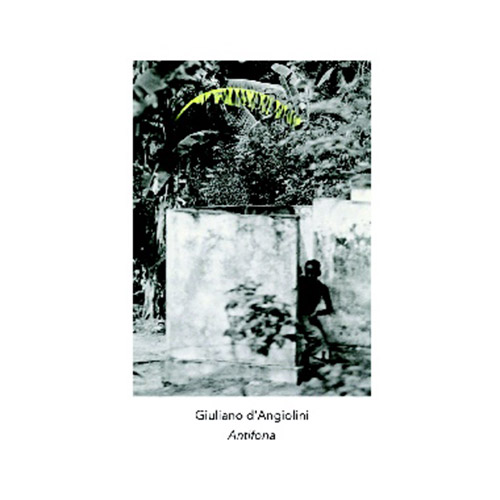
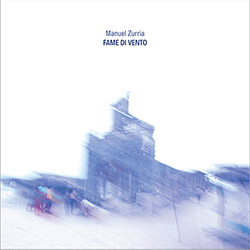
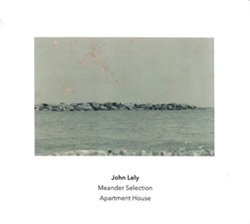
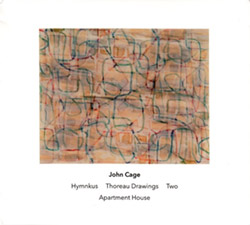
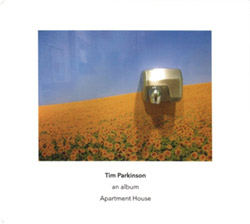
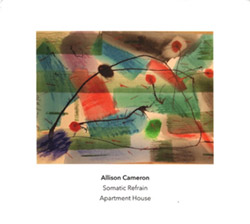
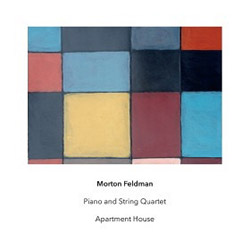
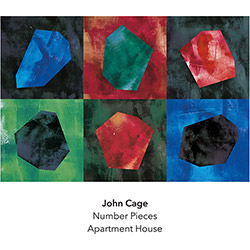


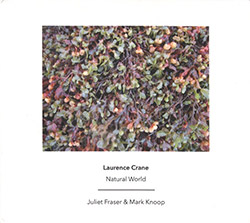
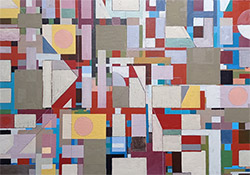

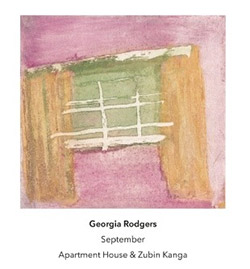
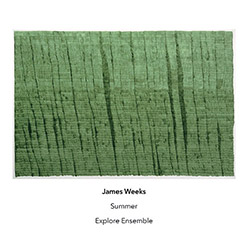
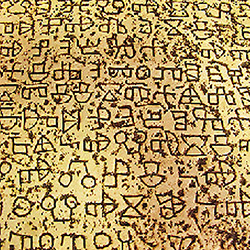



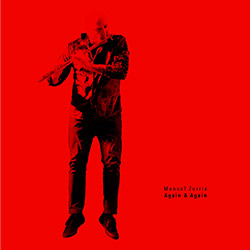
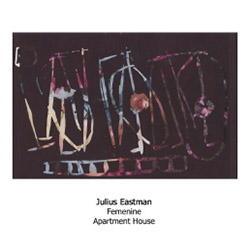


















![Barker / Parker / Irabagon: Bakunawa [VINYL]](https://www.teuthida.com/productImages/misc4/35533.jpg)
![Blaser, Samuel / Marc Ducret / Peter Bruun: Dark Was The Night, Cold Was The Ground [VINYL 10-inch]](https://www.teuthida.com/productImages/misc4/35492.jpg)










![Warren, Kenny (Warren / Hoffman / Ellman): Sweet World [VINYL]](https://www.teuthida.com/productImages/misc4/35451.jpg)


![Blake, Ran / Dave Knife Fabris: Live Amsterdam 2006, First Visit [CD + POSTCARDS]](https://www.teuthida.com/productImages/misc4/35275.jpg)
![Sanna, Claudio: Compositori Sardi Contemporanei II [2 CDs]](https://www.teuthida.com/productImages/misc4/35317.jpg)












![Nevai, Nandor: <<The PRICE of FRONTIER>> Book 1: FULK [BOOK + 4 CDs]](https://www.teuthida.com/productImages/misc4/35464.jpg)
![Nevai, Nandor: <<The PRICE of FRONTIER>> Book 2: MARTIAL [BOOK + 4 CDs]](https://www.teuthida.com/productImages/misc4/35465.jpg)
![Nevai, Nandor: <<The PRICE of FRONTIER>> Book 3: JASSOM [BOOK + 4 CDs]](https://www.teuthida.com/productImages/misc4/35466.jpg)
![Nevai, Nandor: <<The PRICE of FRONTIER>> Book 4: HARD-WON [BOOK + 4 CDs]](https://www.teuthida.com/productImages/misc4/35467.jpg)






![DNS: Taking Big Bites Of The Khandas Three Cafes Deep [2 CDs]](https://www.teuthida.com/productImages/misc4/35334.jpg)




![Cleaver, Gerald: The Process [VINYL]](https://www.teuthida.com/productImages/misc4/34966.jpg)




![Alva Noto: HYbr:ID II [VINYL 2 LPs]](https://www.teuthida.com/productImages/misc4/35201.jpg)

![Baron, Derek / Luke Martin: Distinct and Concealed [CASSETTE + DOWNLOAD]](https://www.teuthida.com/productImages/misc4/35079.jpg)

![Lyle, Erica Dawn : Colonial Motels [CASSETTE + DOWNLOAD]](https://www.teuthida.com/productImages/misc4/35080.jpg)







![Alva Noto: HYbr:ID III [VINYL 2 LPs]](https://www.teuthida.com/productImages/misc4/35011.jpg)
![Kubisch, Christina / Trondheim Voices: Stromsanger 2022 For Six Voices And Electromagnetic Waves [VINYL]](https://www.teuthida.com/productImages/misc4/34628.jpg)









![Granberg, Magnus / Nattens Inbrott / Skogen: Holde Traume, Kehret Wieder! [2 CDs]](https://www.teuthida.com/productImages/misc4/35038.jpg)
![Frey, Jurg: Outermost Melodie [2 CDs]](https://www.teuthida.com/productImages/misc4/35039.jpg)

![Pavone, Jessica: Reverse Bloom [VINYL]](https://www.teuthida.com/productImages/misc4/34895.jpg)




![Modney (Modney / Wooley / Gentile / Roberts / Pluta / Symthe / ...): Ascending Primes [2 CDs]](https://www.teuthida.com/productImages/misc4/34852.jpg)








![Elephant9 with Terje Rypdal: Catching Fire [VINYL 2 LPs]](https://www.teuthida.com/productImages/misc4/35355.jpg)
![Deerlady (Obomsawin, Mali / Magdalena Abrego): Greatest Hits [VINYL]](https://www.teuthida.com/productImages/misc4/34876.jpg)




![Haino, Keiji: Black Blues [2 CDs]](https://www.teuthida.com/productImages/misc4/35109.jpg)



![Surplus 1980: Illusion of Consistency [CD]](https://www.teuthida.com/productImages/misc4/35069.jpg)
![Staiano, Moe: Away Towards the Light [VINYL + DOWNLOAD]](https://www.teuthida.com/productImages/misc4/35037.jpg)




![Caveira (Gomes / Sousa / Abras / Ferrandini): Ficar Vivo [VINYL]](https://www.teuthida.com/productImages/misc4/34643.jpg)
![Gregg, J. J. / David Van Auken: Lunar Prairie [CD w/ DOWNLOAD]](https://www.teuthida.com/productImages/misc4/34611.jpg)

![Coultrain: Mundus [VINYL]](https://www.teuthida.com/productImages/misc4/32439.jpg)
![Mattin: Songbook #6 [VINYL]](https://www.teuthida.com/productImages/misc4/27317.jpg)
![Punkappella: Wake Up [7-inch VINYL]](https://www.teuthida.com/productImages/misc4/17519.jpg)
![Residents, The: WARNING: UNiNC.: Live And Experimental Recordings 1971-1972 [VINYL 2 LPs]](https://www.teuthida.com/productImages/misc4/31521.jpg)
![Coultrain: Phantasmagoria [VINYL]](https://www.teuthida.com/productImages/misc4/30142.jpg)
![Lennon, Sean Ono: Asterisms [VINYL]](https://www.teuthida.com/productImages/misc4/34517.jpg)

![Rotem Geffen: The Night Is The Night [VINYL]](https://www.teuthida.com/productImages/misc4/34631.jpg)
![Coley, Byron: Dating Tips for Touring Bands [VINYL]](https://www.teuthida.com/productImages/misc4/17906.jpg)

![Lost Kisses: My Life is Sad & Funny [DVD]](https://www.teuthida.com/productImages/misc4/lostKissesDVD.jpg)